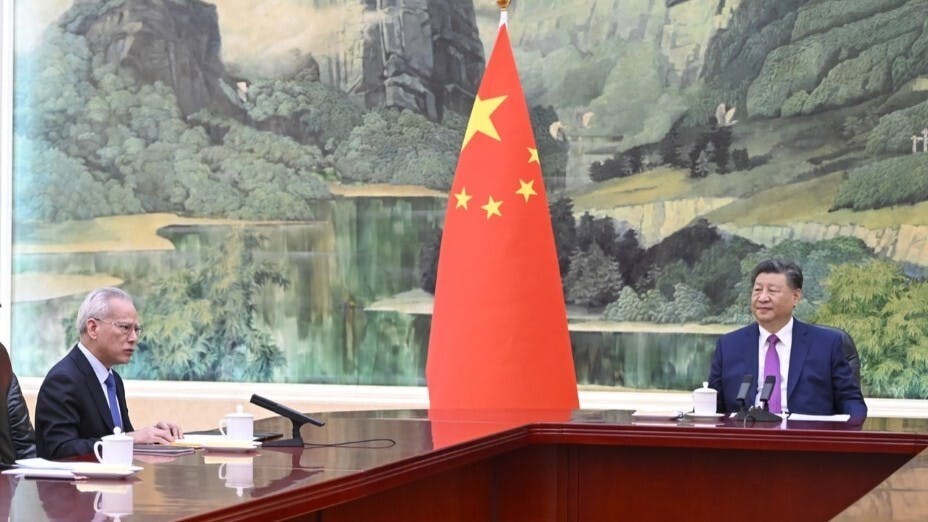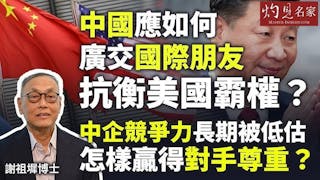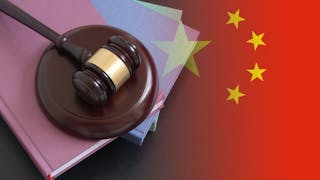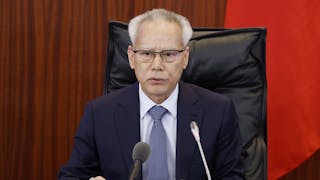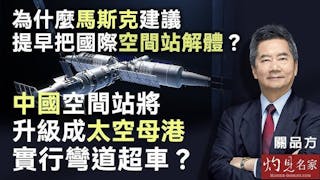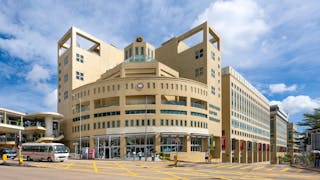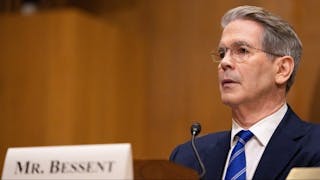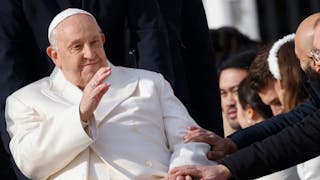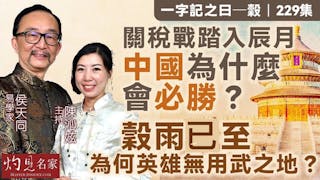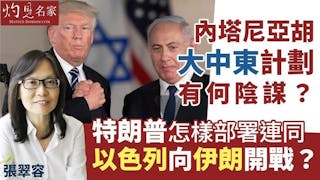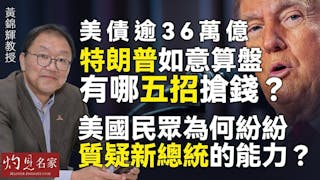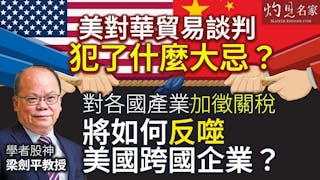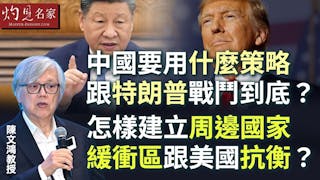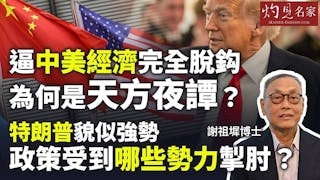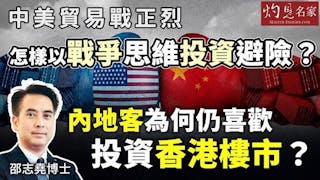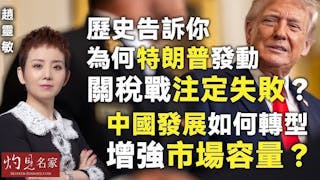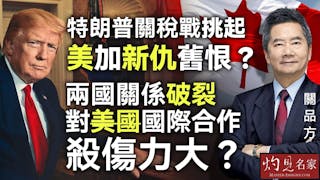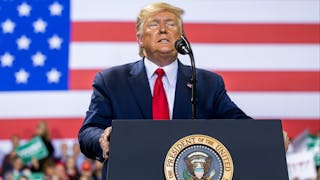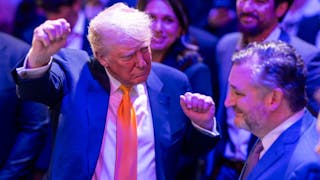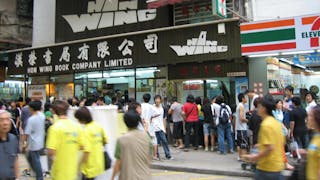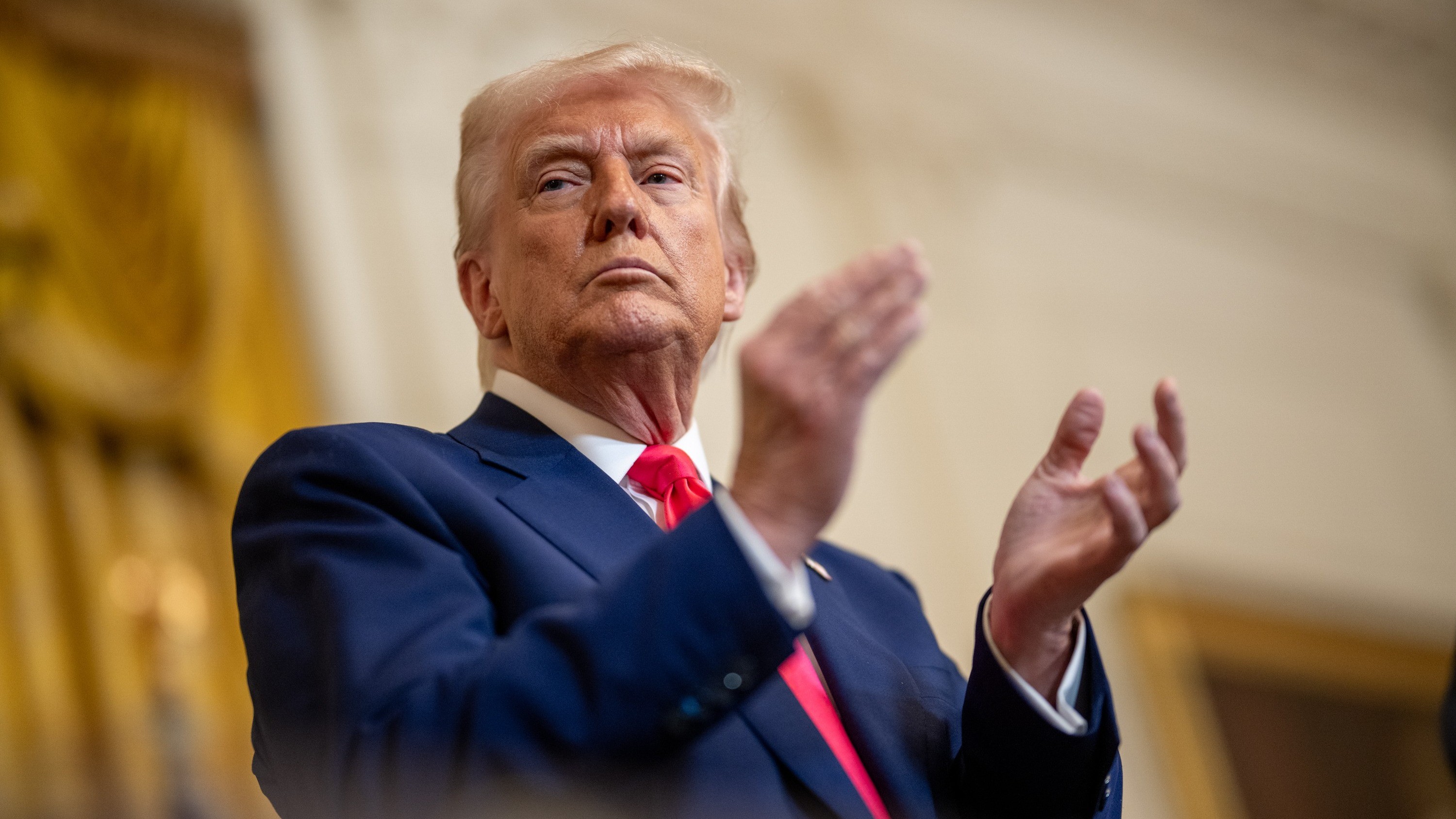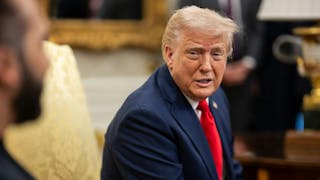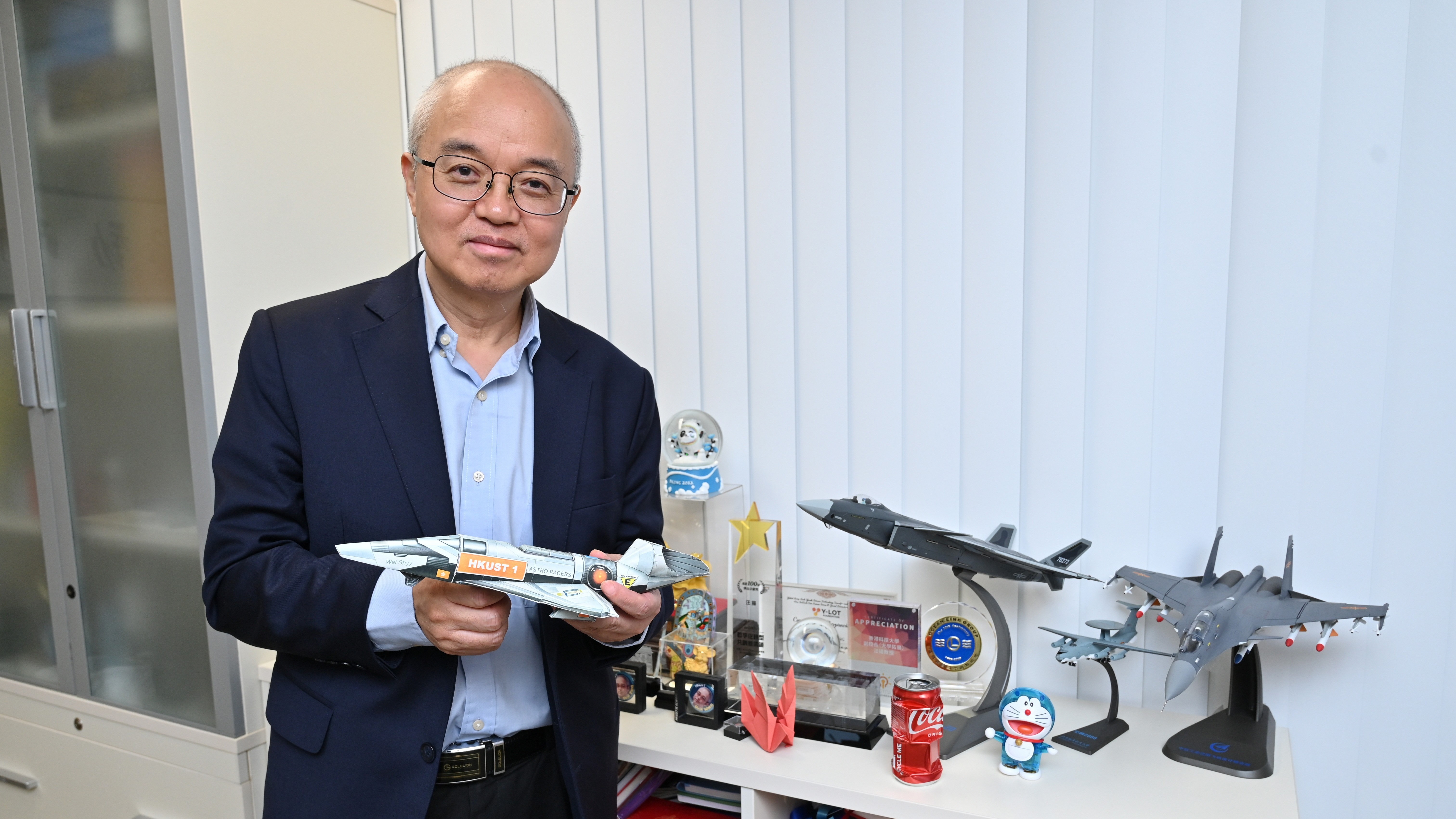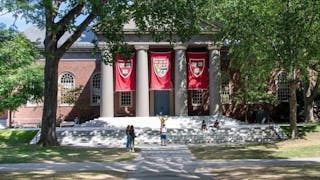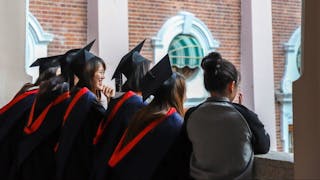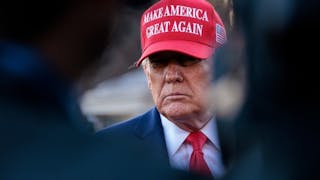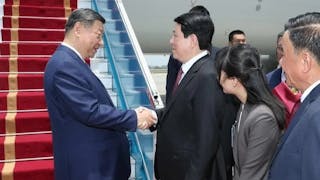澳門候任行政長官岑浩輝赴京進行為期3天的訪問,說明了北京與澳門關係中一些重要現象,包括中央如何處理與岑浩輝的正式任命、雙方會面的安排、以至座位擺設等,更重要的是國家主席習近平關於澳門特別行政區一國兩制政策的講話內容。
與2019年9月時為候任特首賀一誠的情況不同,習近平主席和國務院總理李強未分開接見,而是同場會見,在習近平見證下,李強向岑頒發任命書,新安排提高了行政效率。
座位安排展示中央對澳門高度重視
關於座位安排,與2023年12月賀一誠和香港特首李家超訪京時非常相似。當時習主席坐在長桌主席位置,李強總理面向賀一誠,陪同的有港澳辦主任夏寶龍,然後是港澳辦常務副主任周濟和副主任鄭新聰,最後是澳門行政長官辦公室主任許麗芳。這個安排與李家超向習主席和李強總理進行述職時一樣。
這樣的程序安排,是《基本法》中問責機制制度化的體現,即澳門和香港特首向中央負責,而且,內地官員與行政長官坐在同一邊,意味著港澳辦和中聯辦主任必須協助澳門和香港特別行政區施政,從而體現了中央政府的「對兩市實行綜合管轄。
座位順序安排具有政治意義。首先,它們展示了特首賀一誠於2023年12月出訪的延續性,進一步制度化了澳門特區對北京的問責關係。第二,中央對澳門特別行政區確實高度重視。
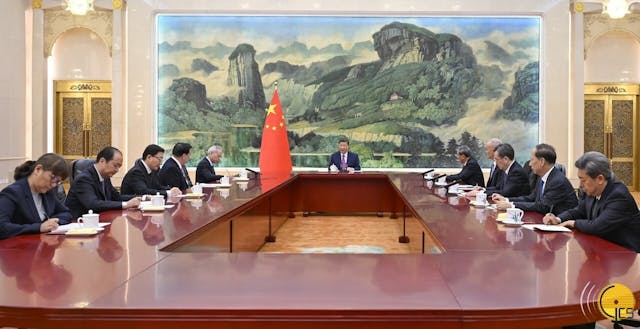
暗示以一國兩制來解決台灣問題
如果我們用政治象徵意義來分析岑訪京接受任命之旅的話,今次將會議安排在福建會堂,似乎暗示中央政府仍然非常熱衷利用一國兩制來解決問題。事實上,北京方面一直重申,可以考慮採用具台灣特色的一國兩制來解決台灣的未來。
最重要的是習近平主席關於澳門的講話。他首先祝賀岑擔任澳門終審法院院長期間的盡職盡責和愛國愛澳的堅定立場。他說,岑自參與澳門行政長官選舉以來,展現了他對澳門人民的親情和解決問題的熱切精神。而且,岑的競選綱領符合澳門的實際情況,也符合澳門人民對美好生活的期盼,中央政府對岑表達「充分肯定、充分信任」。
中央政府確認全力支持岑的競選綱領,這意味著他和他的一群主要官員將在新任行政長官的改革措施和計劃中得到委託和支持。
習近平指出,澳門回歸祖國25年來,在中央和祖國內地大力支持下,特別行政區政府和社會各界接續奮鬥,具有澳門特色的一國兩制實踐取得舉世矚目成就,憲法和澳門《基本法》確立的特別行政區憲制秩序牢固樹立,澳門各項事業全面進步,國際影響力顯著提升。中央將繼續全面準確、堅定不移貫徹一國兩制、澳人治澳、高度自治的方針,確保不會變、不走樣。
習主席強調,要發揮一國兩制的制度優勢,健全香港、澳門在國家對外開放中更好發揮作用機制,不斷開創具有澳門特色的一國兩制實踐新局面,為強國建設、民族復興作出更大貢獻,並稱一國兩制是符合國家、民族根本利益,符合澳門根本利益的好制度。
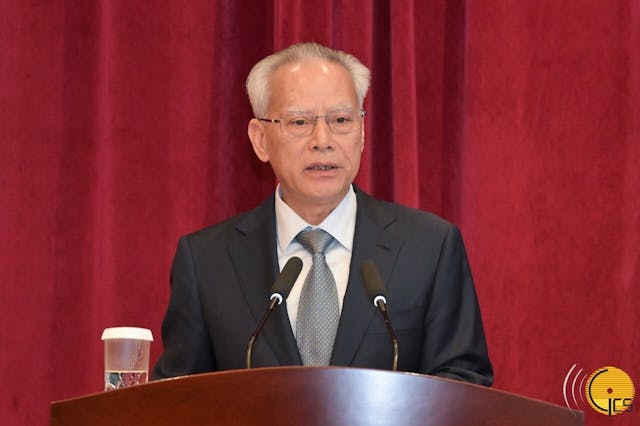
為澳門融入中國式現代化指明方向
習主席還指出,中國共產黨二十屆三中全會對進一步全面深化改革、推進中國式現代化作出系統部署,強調要發揮一國兩制制度優勢,健全香港、澳門在國家對外開放中更好發揮作用機制,因此中央已為澳門融入中國式現代化、實現自身更好發展指明了方向。
習主席在此提出了幾個重要觀點。第一,中國的開放政策沒有改變。即使面對各國針對中國產品推出貿易保護手段,中國仍然奉行多邊主義的對外政策,最近放寬了對更多國家遊客赴華旅遊的限制,就是中國繼續開放進程的見證。
其次,也是最重要的一點,香港和澳門可以在中國經濟開放的進程中「更好地發揮作用」,這句話鼓勵香港和澳門在中國的現代化進程中發揮不同但互補支持的作用。三中全會強調了香港在加強其金融中心、航空樞紐和航運中心地位方面的作用,香港特首李家超在最近的施政報告也強調了這一點。相較之下,澳門必須加強並加速經濟多元化努力,以減少對博彩業的過度依賴。澳門已經被認為是一個獨特的旅遊目的地,可以利用橫琴債券中心的發展來進一步實現經濟多元化並促進永續成長。
綜上所述,岑此次赴京的任命具有重要的政治意義。在北京與澳門的關係方面,澳門行政長官對中央負責的責任已經牢固確立和制度化,在澳門獲得中央重新定位下,有必要在中國的開放進程和現代化進程中發揮「更好的作用」。中央政府全力支持澳門着力改善民生、推動經濟多元化、順利實施具澳門特色的一國兩制的決心。
An analysis of Sam Hou Fai’s appointment visit to Beijing
The three-day visit of the Macau Chief Executive-designate, Sam Hou Fai, to Beijing illustrates a number of important phenomena in Beijing’s relations with Macau, including how the central authorities handled the formal appointment and meeting with Sam, the setting of the seating arrangement, and most importantly the remarks made by President Xi Jinping on the “one country, two systems” policy in the Macau Special Administrative Region (SAR).
On October 21, 2024, the Macau government’s gazette announced that the Court of Final Appeal affirmed the result of the Macau Chief Executive election, and that Sam Hou Fai as the candidate was elected. The Chief Executive election was held on October 13 after which the Court of Final Appeal, in accordance with Law No. 12/2008, Law No. 11/2012, Law No. 13/2018, and the revised No. 3/2004 under No. 20/2023 to affirm the election result, which was verified, and to declare the elected candidate, namely Sam Hou Fai. The number of registered members of the Election Committee was 400 and 398 of them cast their ballots. Sam Hou Fai acquired 394 votes or 98.99 percent of the total votes, while four votes were blank (Sing Tao Daily, October 21, 2004).
The most interesting and yet important procedure was the visit of Chief Executive-designate Sam Hou Fai to Beijing. The Wen Wei Po in Hong Kong on November 2 showed in its cover page that Mr. Sam Hou Fai received the appointment letter from Premier Li Qiang on November 1st, while President Xi Jinping and other top Chinese officials were sitting in a long table and witnessing the event during which Li Qiang and Sam Hou Fai were holding the appointment letter for photographers to take photos.
When Ho Iat Seng was elected as the Macau Chief Executive-designate in August 2019 and when he went to Beijing on September 11 to receive the formal appointment letter from the central authorities, he met the late Premier Li Keqiang in the morning and then he met President Xi Jinping at the Great Hall of the People in the afternoon. Premier Li Keqiang handed Ho Iat Seng a decree for the formal appointment at Zi Guang Ge of Zhongnanhai, adding that the appointment represented the central government’s trust of Ho and concern about Macau residents’ great hope and expectations for the new Chief Executive (Macau Yearbook 2020). President Xi said that, during the past 20 years of Macau from 1999 to 2019, under the leadership of the Chief Executives Edmund Ho Hau-wah and Fernando Chui Sai-on, the Macao SAR united the people from all walks of life and this demonstrated to the world a successful practice of the “one country, two systems” with “Macau characteristics.” President Xi hoped that Ho would demonstrate his awareness of the overall developmental direction with great foresight, and that the new Chief Executive would accurately grasp Macau’s situation and China’s strategic development needs for the sake of implementing the “one country, two systems” successfully.
This time, on November 1, 2024, Mr. Sam Hou Fai’s appointment letter was also delivered by the Chinese Premier, namely Li Qiang, but the event took place just shortly before the formal meeting with President Xi Jinping, who sat down on a long table to witness Premier Li’s holding of the appointment letter with Decree No. 794 with Mr. Sam.
The 2024 appointment procedures combined the Chief Executive-designate’s meetings with the President and the Premier simultaneously, unlike the situation in September 2019. This might illustrate the central authorities’ adjustment to the procedures in which currently the President’s meeting with the Macau Chief Executive-designate took place immediately after the appointment letter with the central government’s decree was formally conferred by the Premier upon the Chief Executive-designate. The new procedure brought about an increase in administrative efficiency.
With regard to the seating arrangement, it is noteworthy that the central authorities exhibited a seating arrangement very similar to the duty visits of both Macau Chief Executive Ho Iat Seng and Hong Kong Chief Executive John Lee’s to Beijing in December 2023 (see my commentary: OPINION – An Analysis of the Constitutional Practice of Chief Executive’s Duty Visit and Report to Beijing | Macau Business). At that time, President Xi was sitting in the middle and chair position of a long table, with Premier Li Qiang facing Ho Iat Seng, who was accompanied by Xia Baolong (Hong Kong Macau Affairs Office director) on his right, then Zhou Ji (Hong Kong Macau Affairs Office deputy director), Zheng Xincong (Liaison Office director in Macau) and finally Hoi Lai Fong (Macau Chief Executive Office director). This set-up was like that in John Lee’s duty report to President Xi and Premier Li in the same month.
It is important to note that, on November 1st, the meeting between Mr. Sam and the Chinese President and Premier was held in the Fujian Hall of the Great Hall of the People. The Fujian province on October 29 rolled out its third package of policies designed to benefit Taiwan residents in the province’s cross-strait integrated development demonstration zone.
Such a procedural arrangement was an expression of institutionalizing the accountability mechanism as mentioned in the Basic Law, which requires the Chief Executives of Macau and Hong Kong SARs to be accountable to the central authorities in Beijing. Moreover, with mainland officials sitting with the Chief Executive on the same side, it meant that the directors of the Hong Kong Macau Affairs Office and of the Liaison Office must assist the Macau and Hong Kong SARs in their governance, thereby demonstrating the central government’s “comprehensive jurisdiction” over the two cities.
This time, on November 1st, interestingly Mr. Sam was also sitting opposite to Premier Li while simultaneously accompanied by HKMAO director Xia Baolong, HKMAO deputy director Zhou Ji and Liaison Office director Zheng Xincong– the same line-up as with Ho Iat Seng’s duty visit to Beijing in December 2023. Similarly, on the other side of the long table showed that the central authorities had the same line-up as with December 2023: namely Premier Li Qiang, Central Secretariat’s secretary Cai Qi, Deputy Premier Ding Xuexiang, Minister of United Front Work Department Shi Taifeng, and Political and Legal Commission Secretary Chen Wenqing.
The line-up and sitting arrangements were politically significant. First, they demonstrated continuities from the Chief Executive’s duty visit in December 2023, further institutionalizing the accountability relations from Macau SAR to Beijing. Second, the central authorities really attach immense importance to Macau SAR.
It is important to note that, on November 1st, the meeting between Mr. Sam and the Chinese President and Premier was held in the Fujian Hall of the Great Hall of the People. The Fujian province on October 29 rolled out its third package of policies designed to benefit Taiwan residents in the province’s cross-strait integrated development demonstration zone. This new set of measures include the advancement of cross-straits financial cooperation, the support of Taiwan residents’ development in Fujian, the expansion of judicial services, the convenience to Taiwan people for their travel and residence in Fujian, the offer to the Taiwan people special cards for their convenient e-payment in the mainland, the encouragement of Taiwan enterprises to complete foreign debt registration directly at mainland banks, and the support of IPOs by Taiwan business (Global Times, October 29, 2024).
If political symbolism can be used in our analysis of Mr. Sam’s appointment visit to Beijing, the arrangement of the meeting in the Fujian Hall seemed to imply that the central government in Beijing remains very keen to utilize the “one country, two systems” to deal with the future of Taiwan. In fact, Beijing has been reiterating that a Taiwan model of “one country, two systems” can be considered to tackle the future of Taiwan.
Most importantly, President Xi Jinping’s remarks on Macau are important. He first congratulated Mr. Sam for his dedicated work as the chief judge at the Macau Court of Final Appeal and for his firm position of loving the nation and Macau. The President also remarked that Mr. Sam since his participation in the Macau Chief Executive election has shown his closeness to the Macau people and his eagerness to tackle issues. Moreover, Sam’s campaign platform, according to President Xi, was in conformity with Macau’s situation and in accordance with the expectation of the Macau people for their better life. As such, the central government, Xi said, “fully affirms and fully trusts” Mr. Sam (Wen Wei Po, November 2, 2024, A1).
The President’s remarks above are politically significant as he endorsed Mr. Sam formally as the next Chief Executive of the Macau SAR. Furthermore, the central authorities affirm their full support of Mr. Sam’s campaign platform, meaning that he and his governing batch of principal officials will be entrusted and supported in the new Chief Executive’s reform measures and plans.
The President added his view toward the “one country, two systems,” which to him is a principle in conformity with the “core interest” of the country and the nation. Xi pointed to not only the achievement of the “one country, two systems” with “Macau characteristics” in the past 25 years but also the “firm entrenchment” of the “constitutional order” of the Macau SAR. Macau’s international influence has increased, the President said, and as such, the central authorities will “fully, accurately and resolutely” implement the principles of “one country, two systems,” “Macau people ruling Macau,” and the city’s “high degree of autonomy.”
Since the meeting between Mr. Sam and President Xi was held in the Fujian Hall, and because “one country, two systems” remains as Beijing’s policy toward Taiwan, the symbolic significance is that mainland authorities will strive to craft a “one country, two systems” model with Taiwan characteristics.
President Xi also remarked that the Third Plenum of the Communist Party of China has deepened reforms and implemented the Chinese style of modernization, that it has emphasized the promotion of the advantages of “one country, two systems,” and that Hong Kong and Macau can “perform better functions” in China’s opening-up process. As such, the central government has already, according to Xi, given “clear directions” for Macau to have the “historical opportunity” of “integrating into the Chinese-style modernization.”
In terms of Beijing’s relations with Macau, the Macau Chief Executive’s accountability to the central authorities has been firmly established and institutionalized. In terms of the repositioning of Macau SAR, it has to perform “better functions” in China’s open-up process and modernization.
There are several important points raised by President Xi here. First, China remains unchanged in its open-door policy. Its external policy of multilateralism, and its recent relaxation for more foreign tourists from different countries to visit China are a testimony to this opening-up process amid a world of economic protectionism against the Chinese products. Second and most importantly, Hong Kong and Macau can “perform better functions” in China’s process of opening its economy – a remark encouraging Hong Kong and Macau to play different but supportive and complementary roles in China’s modernization. The Third Plenum underscored Hong Kong’s role in strengthening its position as a financial center, aviation hub, and maritime center—an emphasis echoed in the recent policy address by Hong Kong Chief Executive John Lee. Macau, by contrast, must intensify and expedite its economic diversification efforts to reduce its overreliance on the gaming sector. Already recognised as a distinctive tourist destination, Macau can leverage the development of the bonds center in Hengqin to further diversify its economy and foster sustainable growth.
As such, Mr. Sam Hou Fai’s campaign platform that emphasized economic diversification and Hengqin’s development is indeed the way forward for Macau – a direction fully encouraged and supported by Beijing. President Xi’s remarks also implied that Macau can and should foster its role as a platform for China to enhance its economic relations with Portuguese-speaking countries, like Hong Kong where the Chief Executive and his economic delegations have visited the Middle East and Southeast Asian countries with a view to enhancing Hong Kong’s role in the Chinese Belt and Road Initiative.
In conclusion, Mr. Sam Hou Fai’s appointment visit to Beijing was politically significant. In terms of Beijing’s relations with Macau, the Macau Chief Executive’s accountability to the central authorities has been firmly established and institutionalized. In terms of the repositioning of Macau SAR, it has to perform “better functions” in China’s open-up process and modernization. The central government therefore fully supports Macau to focus on its improvement of the people’s livelihood, its drive to diversify its economy and its determination of implementing the “one country, two systems” with “Macau characteristics” smoothly and successfully.
原刊於澳門新聞通訊社(MNA)網站,本社獲作者授權轉載。(原文按此)



